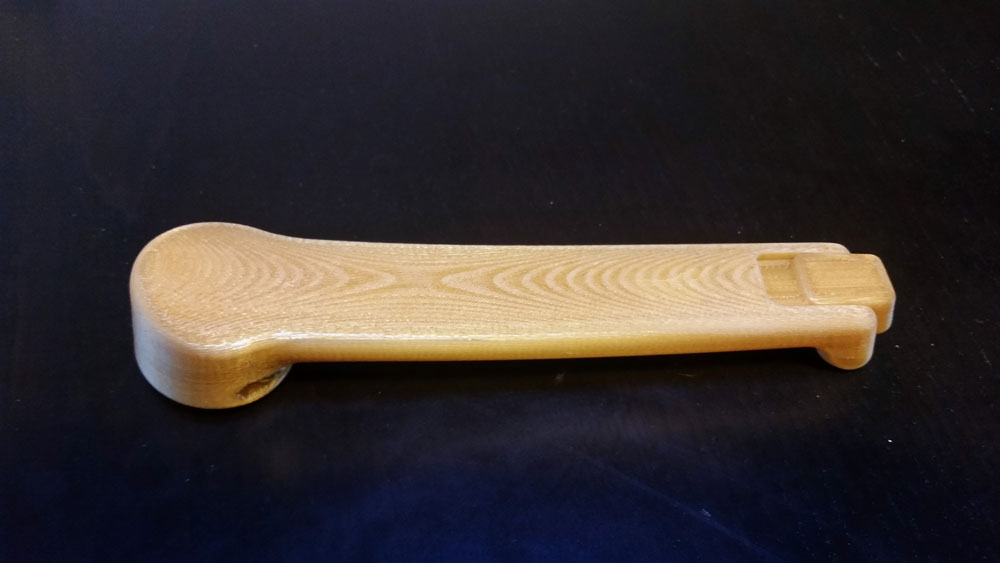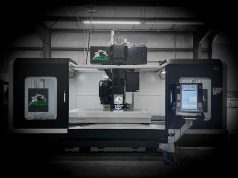At BI-MU 2018, Stratasys today reveals how Italian industrial composite structure manufacturer, Plyform, is leveraging Stratasys FDM additive manufacturing to significantly enhance its production capability for the aerospace industry. The company is using 3D printed sacrificial tools to produce composite parts for helicopters, and in some cases, working with its customers to 3D print flight-ready aircraft parts using Stratasys’ aerospace-grade ULTEM 9085 material.
3D printed tools boost composite production
Based in Varallo Pombia, Plyform is an expert when it comes to utilizing advanced composites materials to manufacture parts for industrial applications. With a large focus on the aerospace sector, the company is using 3D printed composite tools to produce a wide range of carbon-fiber parts for helicopters, significantly faster than using aluminum tools and at a fraction of the cost.
This is exemplified when producing the pilot’s cyclic stick. Using Stratasys FDM additive manufacturing, Plyform 3D prints a mold tool in ST-130 soluble material. The carbon fiber composite material is then wrapped around the mold, and once cured, the internal sacrificial core is washed away leaving the final composite part.
“With traditional composite production, the challenge is always lead times, cost-effectiveness, and in many cases, the quality of the final composite part,” explains Luca Ceriani, Plyform Head of Manufacturing Engineering. “To produce the composite tool for a helicopter’s pilot stick, traditionally we would need four hours to mill the tool and another four hours to give it an external treatment to avoid resin contamination. With Stratasys FDM technology, we can 3D print a tool in just two and a half hours and at 80% reduced cost. In addition, I estimate that using this technique the quality of the part has improved by 30%. This is a game-changer for our business.”
Lightweight, flight-ready 3D printed parts
Due to stringent certification required in the aerospace industry to produce final parts aircraft, Plyform has adopted a Stratasys F900 Production 3D Printer to extend this service offering to customers. Citing a rapid rise in interest from customers in this area, the company is using Stratasys’ aerospace-grade ULTEM 9085 thermoplastic to produce lightweight parts with the desired flame, smoke and toxicity requirements for use on aircraft.
“Additive manufacturing enables us to overcome the time and cost limitations of traditional low volume production for aerospace, but there are strict rules and regulations around certification that require the highest level of repeatability and traceability with every part manufactured,” says Ceriani. “The F900 offers the best precision and repeatability of all additive manufacturing technologies we’ve tried, while the ULTEM 9085 material is ideal for the aerospace industry, as its FST compliant and offers high chemical and thermal resistance. Having access to this technology enables us to bypass the traditional tooling process and 3D print lightweight parts for our customers on-demand, at a much lower cost.”
With the F900, Plyform is able to produce complex geometries down to the smallest millimeter or large-scale parts leveraging the 3D printer’s large build plate. With subtractive production processes, many of the geometries required are simply not possible. With additive manufacturing, Plyform is able to produce complex parts and consolidate the number of components, making them much lighter than traditional parts.
“In the aerospace industry, every gram we can eradicate from each part manufactured makes a huge difference,” explains Ceriani. “With the F900, we can produce parts with extremely good surface finish. Once we paint and finish each part, it’s amazing how closely they look like a traditional manufactured part. But most importantly, the parts produced can match the performance of aluminum parts, which will be key to opening up more and more additive manufacturing applications within the aircraft in the future.”
Subscribe to our Newsletter
3DPresso is a weekly newsletter that links to the most exciting global stories from the 3D printing and additive manufacturing industry.























